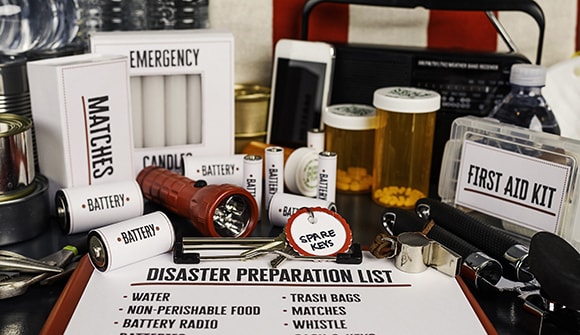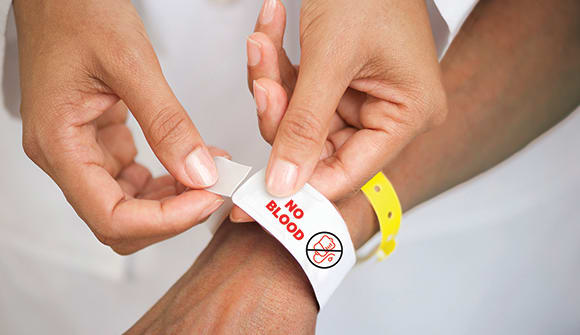Medically prepare for hurricanes
Don’t wait until a weather emergency.
Article Author: Johnny Woodhouse
Article Date:

Atlantic hurricane season occurs each year from June 1 to Nov. 30. If you live in Florida or another hurricane-prone area, you probably know how to prepare your home and property for a major weather event such as a hurricane or a flash flood. But during these extended emergencies, people often overlook their crucial medical needs.
Hurricane prep list for medical needs
If you have a child or a family member with an illness or condition requiring specialized medical services, here are five things to do to prepare for hurricane season:
1. Contact your medical providers.
If you have chronic or serious medical conditions, you may want to reach out to your health care providers before and after the hurricane. They can offer specific advice and guidance tailored to your medical needs. You can also find out how to reach them in the event their offices are closed.
2. Gather your medical records.
Create a paper and electronic copy of all important documents including your medical history, pharmacies, medications, hospitals, insurance and other health care services you may need. Store hard copies in a portable waterproof container and keep digital copies in a secure cloud storage service or on a portable USB drive.
3. Assemble an emergency medical kit.
Put together a well-stocked medical emergency kit that includes essential supplies such as prescription and over-the-counter medications, first aid supplies, bandages, antiseptic solutions, gloves, masks and any other specific medical items you or your family members may need. Have at least a week's supply of prescription and over-the-counter medication on hand.
4. Prep your medical equipment.
Determine which medical devices you will need to take with you if you're ordered to evacuate. If you rely on equipment that requires electricity like oxygen concentrators or CPAP machines, make sure you have a backup power source, such as a generator or extra batteries.
5. Identify nearby medical facilities and shelters.
If you live in an area prone to hurricanes and there's a possibility of evacuation, plan ahead. Identify medical facilities and shelters along your evacuation route and make sure you have transportation arranged in advance.
If you decide to shelter in place, many emergency management agencies will assist those requiring specialized medical services at home during a storm. If you have special needs, register now with the State Emergency Response Team.
Don't wait until the storm arrives
Act early when there's a hurricane threat, even if it's a week or more away. If you plan to leave your home, try to evacuate before the masses so you're not sitting in traffic and can safely find a shelter that can accommodate your medical needs. Be sure to let family members know where you're going and how to reach you.
Learn more ways to prepare for hurricane season
It's important to remember, if you do decide to stay home when evacuations are ordered, first responders may not be able to reach you in an emergency. Ready.gov offers more tips to help prepare your family and your home for a weather event.



